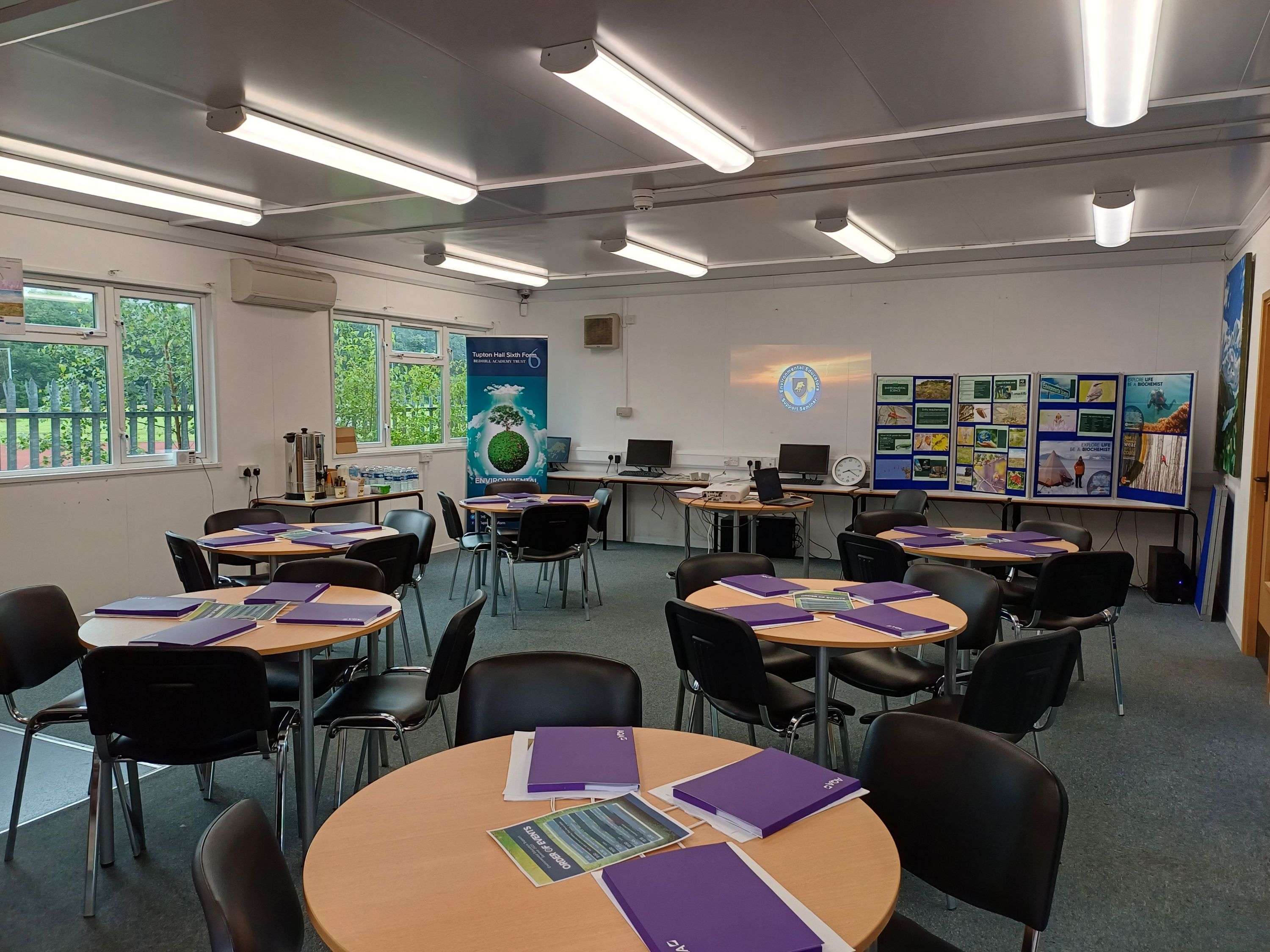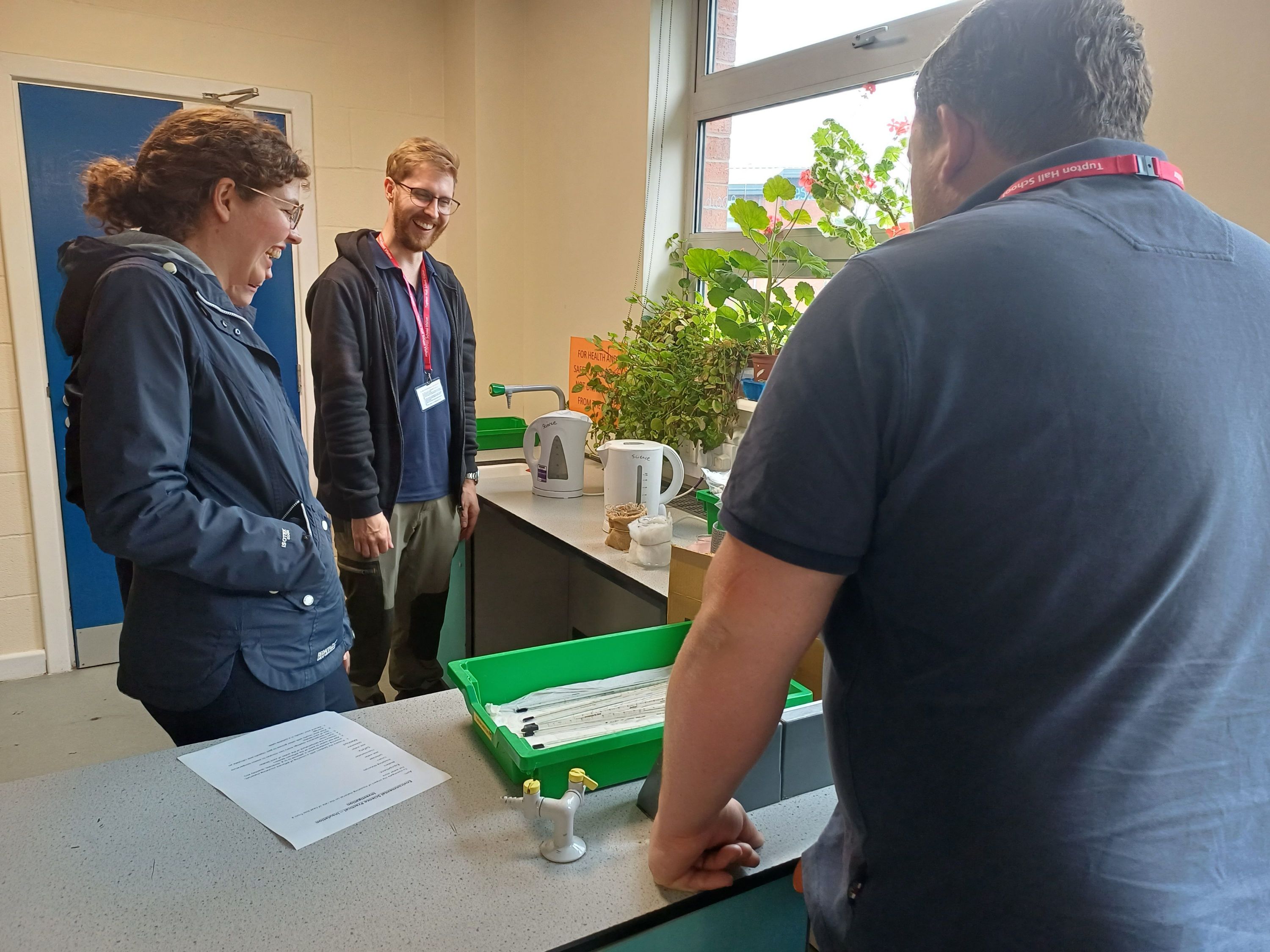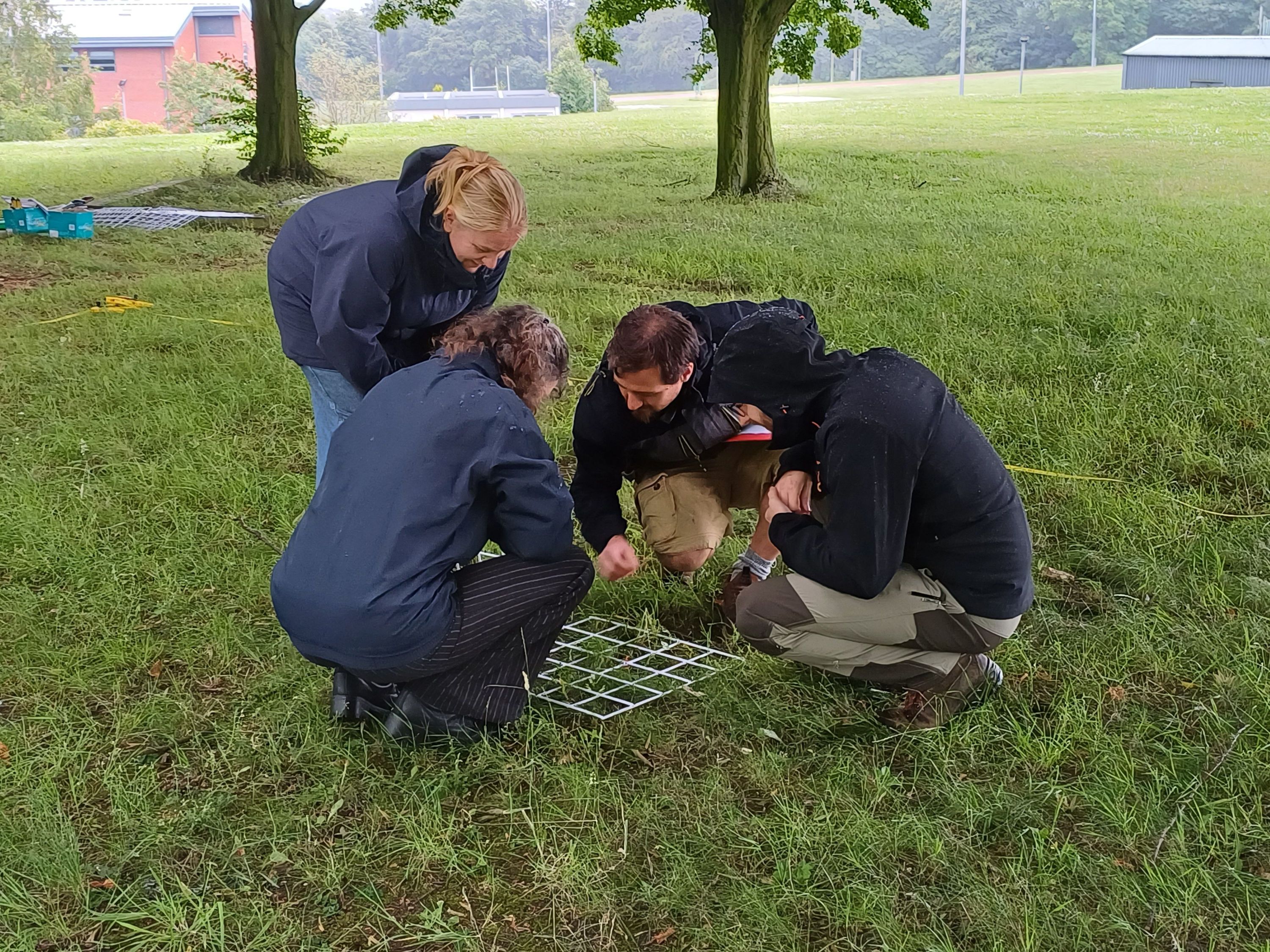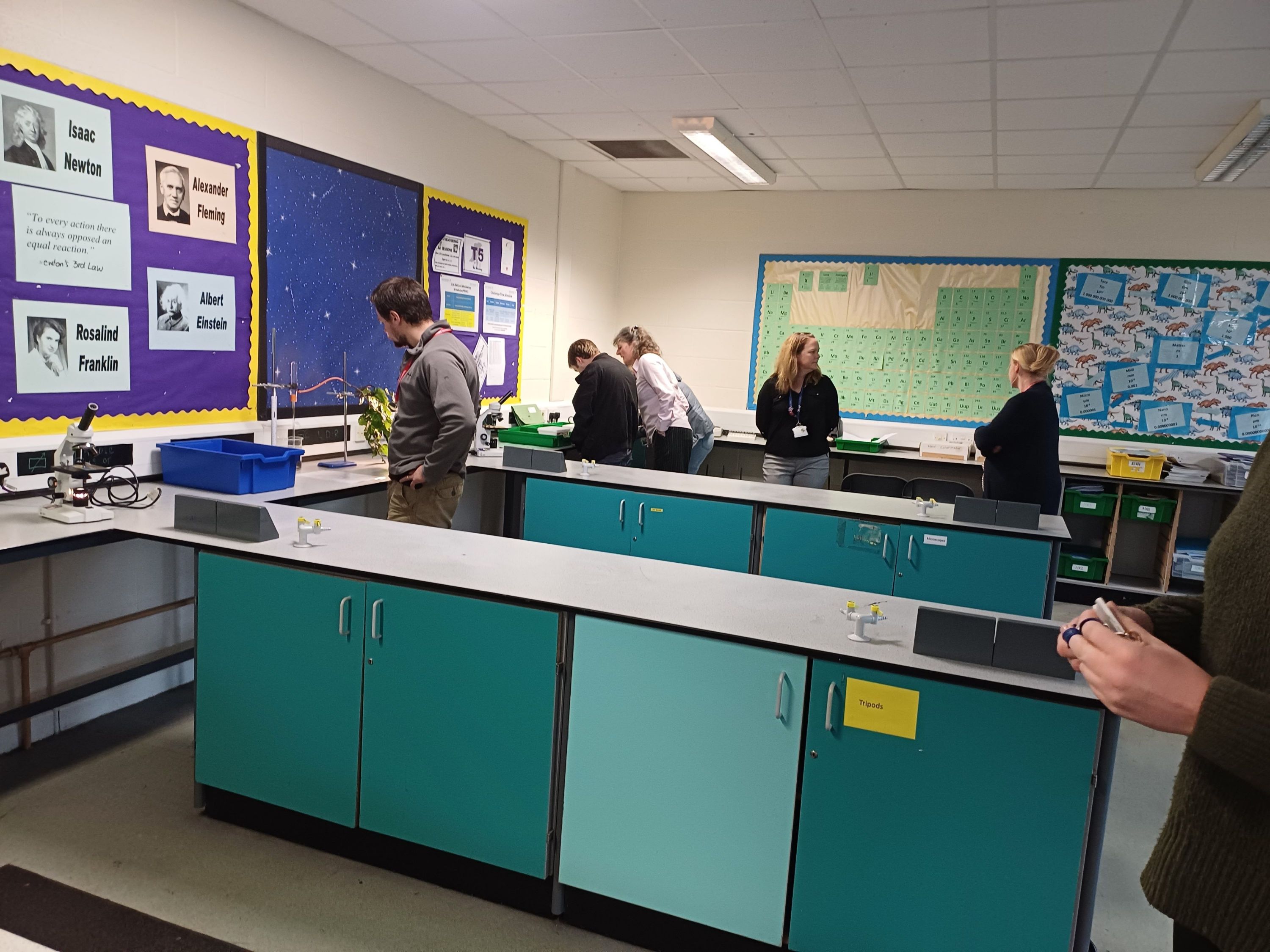Important Legacy Established with Environmental Science Seminar

After the success of our event last year, Friday 14th July saw us host our second Environmental Science CPD seminar with teaching staff joining us from across the country.
Our impressive sixth form facility, OutPost 16, was used as the main venue for the day set up for presentations from AQA, Leaf Education, Field work and Laboratory skills. Our extensive grounds allowed us to set up mock field work and our well-appointed laboratories also used.
Although the weather was against us, it didn’t dampen the spirits of the delegates who were more than happy to spend time outside, sheltering under trees when necessary, to participate in the varied and interesting activities related to farming and the Environmental Science A-Level curriculum. Activities included those designed to improve observation skills, a creative way to map and record the landscape using natural resources as art materials and ‘plant your pants’ to assess soil quality. Teachers from Tupton Hall School lead sessions on field work activities allowing delegates the opportunity to try something new or share their thoughts on how to do something differently. The laboratory session allowed geographers to try less familiar laboratory practical work and take back ideas to use in their own setting.
Environmental Science A-level is a relatively new course but since there is an increasing awareness among the general public about environmental issues and the impact of human activities on the planet, the course is becoming more popular with our young people. Concerns about climate, change, deforestation, pollution and biodiversity loss have gained significant attention in recent years. This heightened awareness has led to a greater interest in understanding the environment and finding solutions to address these challenges, this is expanding career opportunities in the field. As governments, organisations, and businesses recognise the importance of sustainability, there is a growing need for environmental scientists who can provide expertise in areas such as environmental impact assessment, resource management, renewable energy, conservation and environmental policy. This has made environmental science an attractive and rewarding career path for many individuals.
Environmental science is an interdisciplinary field that combines elements of biology, chemistry, physics, geography and social sciences. This interdisciplinary approach means that we need to support teachers from all of these fields to meet the challenging course requirements, which is why CPD opportunities like this one are vital in developing the quality of provision for our students. Allowing teachers from different academic backgrounds to collaborate, share ideas and good practice whilst developing their own skill set.
Everyone had a great day and went away with new contacts and ideas to improve the experiences of their students and more confidence.






